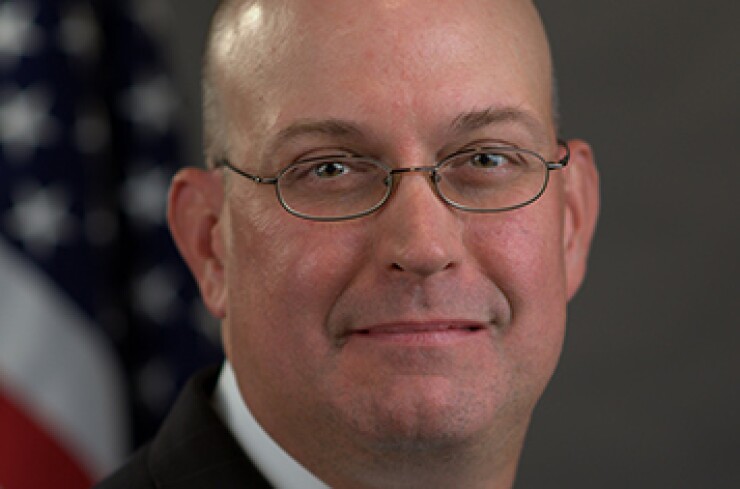
WASHINGTON – About of 50 of the 650 registered municipal advisors were examined by the Securities and Exchange Commission's Office of Compliance Inspections and Examinations in fiscal 2015, the office director told House subcommittee members on Thursday.
OCIE director Marc Wyatt also said the office is examining advisers to mutual funds, exchange-traded funds, and private funds that have exposure to potentially illiquid fixed-income securities.
Wyatt made his remarks in oral and written testimony provided to the House Financial Services Committee's capital markets and government sponsored enterprises subcommittee at a hearing on oversight of the SEC.
Wyatt's remarks come after the Dodd-Frank Act gave the SEC and Municipal Securities Rulemaking Board oversight and regulatory authority over municipal advisors.
They also come after the SEC's investment management division last month urged funds with exposure to Puerto Rico debt to continually update their disclosures based on the risks associated with those investments.
Wyatt said the office has a staff of more than 1,000 employees, but is responsible for examining not only the 650 MAs, but also more than 12,000 investment advisers, 11,000 mutual funds and exchange-traded funds, more than 4,000 broker-dealers, and 400 transfer agents.
The office also has oversight responsibility for the Municipal Securities Rulemaking Board, the Financial Industry Regulatory Authority, 18 national securities exchanges, six registered clearing agencies, and the Public Company Accounting Oversight Board.
"To meet the challenges posed by a registrant population that far exceeds OCIE resources, OCIE has adopted a risk-based approach to examinations, utilized data analysis, and promoted compliance through transparency," he told the lawmakers.
OCIE's Office of Risk Assessment and Surveillance aggregates and analyzes data from SEC filings from registrants and individuals to identify activity that may warrant examination, he said.
Sean McKessy, chief of the Office of the Whistleblower, said the SEC has awarded more than $57 million to 27 whistleblowers since the program took effect in August 2011. The information the whistleblowers provided led the SEC to bring enforcement actions in which more than $400 million in sanctions were ordered, including the disgorgement of $325 million of ill-gotten gains to investors, he said.
McKessy said the number of whistleblower tips have increased each year, with the SEC receiving nearly 4,000 in fiscal year 2015, a 30% over the number received in fiscal year 2012, the first full year of the program.
The SEC is seeking $1.78 billion to support 5,196 positions and 4,870 full time equivalents, increase examinations, enhance enforcement capabilities, hire more experts, enhance cutting-edge technology to permit the commission to keep pace with regulated entities, markets and products, and bolster the commission's economic and risk analysis functions, according to the written testimony.
SEC funding is deficit-neutral because it is offset by transaction fees collected by the commission. SEC appropriations also do not count against the fiscal 2016 or 2017 caps set in the Bipartisan Act of 2015.
But in a release issued after the hearing, Rep. Scott Garrett, R-N.J. noted that the SEC's budget authority for fiscal 2016 was more than $1.6 billion and said, "The SEC has sufficient funds to perform its statutory obligations."
He accused the SEC of continuing to "squander its resources on rulemakings that harm U.S. companies and investors." He added that while its budget has quadrupled during the last 15 years, the commission has "missed some the greatest frauds in history and was ill-prepared for the financial crisis of 2008."





